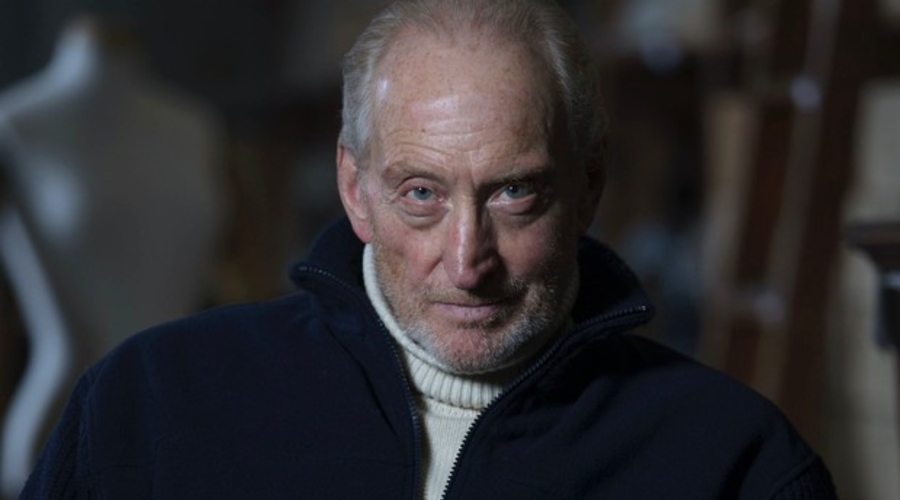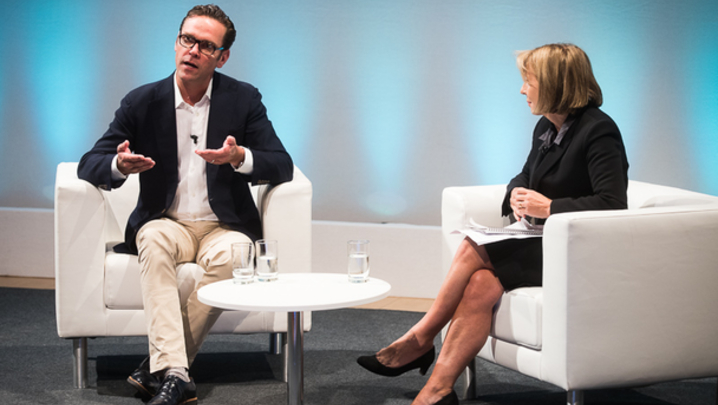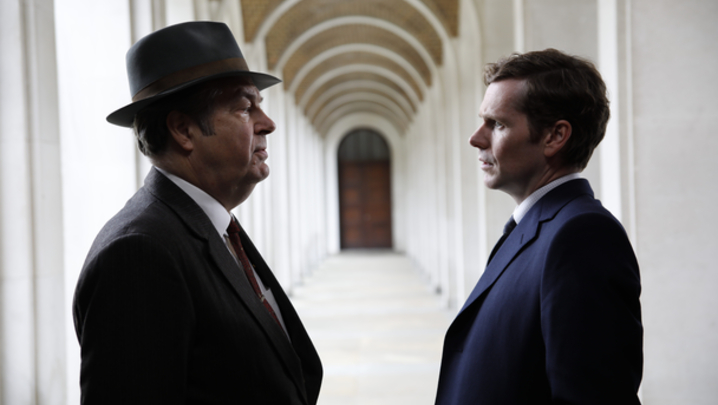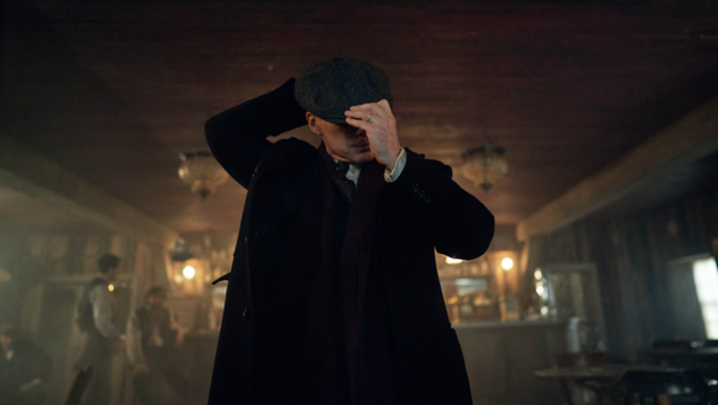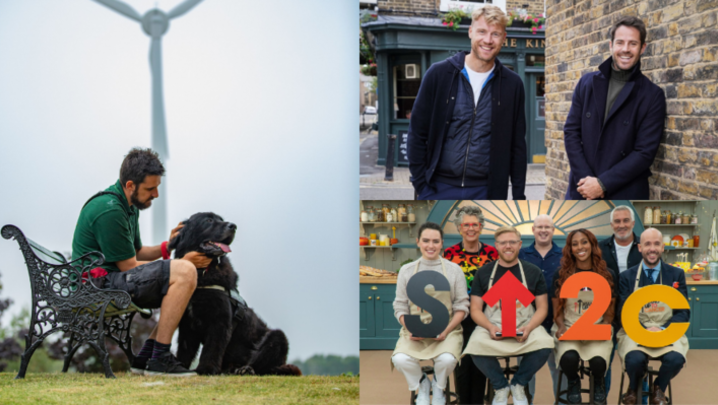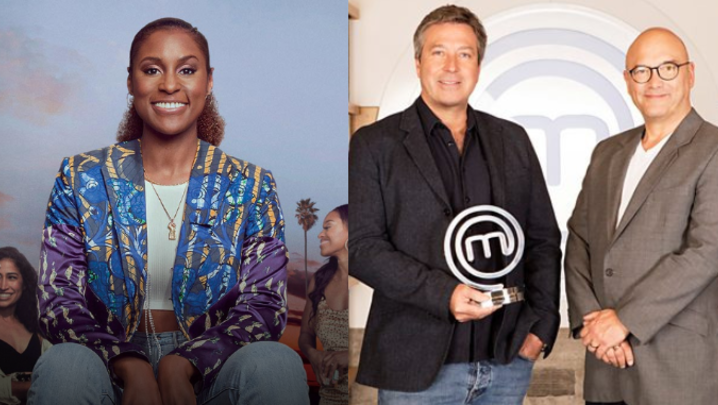Former Goodie Bill Oddie was the celebrity featured in the very first episode of Who Do You Think You Are? – and more than 130 have followed in his wake. That’s a lot of telly tears because, as Alex Graham told an RTS London audience in early March, “We’re famous for people crying on the show.”
Graham, who founded the programme’s producer Wall to Wall, came up with the idea for a genealogy series in which famous faces discover the truth about their ancestors – but it took a decade and a half for a commissioner to bite.
“This show is 15 years old this year but this year is also the 30th anniversary of me trying to sell it to the BBC,” he said.
And, argued Graham, it’s not really a genealogy show. “Who Do You Think You Are? uses genealogy as a tool to unlock social history. It’s social history in it’s widest sense – it’s about families, secrets and lies, and skeletons,” he told Lis Howell, Professor Emeritus at City University’s Department of Journalism and an RTS award-winning TV journalist, who chaired the event.
Actor Charles Dance explained why he had agreed to feature in a recent episode: “I knew so little about my family. I’d like to be able to tell my children a lot more about where they came from.”
Dance made his name in the 1980s ITV drama about the last days of the British Raj, The Jewel in the Crown, and he plays Lord Mountbatten in the new series of Netflix drama The Crown.
The actor’s mother had left him in the dark about his father, who died when Dance was an infant.
“She didn’t tell me much about much actually. She dragged quite a lot of skeletons around. I could give the programme-makers the bare minimum of facts and I was astonished how, a few months later, they had a programme,” he recalled.
“Charles is the perfect subject for Who Do You Think You Are? because he didn’t know very much and what he did know was partly right and partly wrong.”
“Charles is the perfect subject for Who Do You Think You Are? because he didn’t know very much and what he did know was partly right and partly wrong,” said Graham, who left Wall to Wall to start Two Cities Television – makers of Sky Atlantic hit drama Patrick Melrose – with former Channel 4 boss Michael Jackson.
In an episode full of surprises, Dance discovered that he had a half-sister who died young, that his father fought in the Boer War and had a family in South Africa before returning to England and meeting the actor’s mother – who was a waitress at a Lyons Corner House – and that his older brother was, in fact, his half-brother with an unknown father.
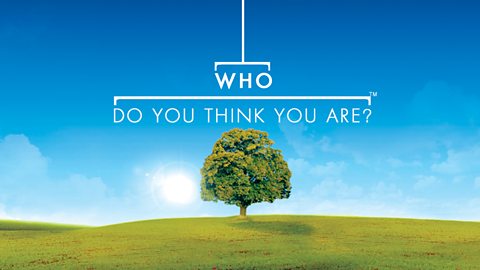
“My mother didn’t have two ha’pennies to rub together; she went into service when she was 13. Because of the way my face is put together, in my work I’m often cast aristocratically, but there’s nothing aristocratic about me whatsoever – I’m as common as muck,” said Dance.
Not every celebrity who signs up for the show has a story to tell that works for primetime telly.
“Michael Parkinson wrote rather touchingly about when he discovered he was too boring for the show,” recalled Graham. “We don’t have limitless resources. If we did, we’d probably find a story for everyone.”
Who Do You Think You Are? makes huge demands on its researchers. “There’s a big engine room of research that goes on throughout the year,” explained Rosie Schellenberg, who directed the Charles Dance episode.
“When it comes to production, the stories have already been fleshed out and [we know] the content of the film.”
Schellenberg and her production team of an assistant producer and researcher comes on board just four weeks before filming starts. On location, a camera operator and sound person join the crew.
“As a director, it’s a very creative programme. Because a lot of the story is mapped out,” said Schellenberg, “it allows you to concentrate on the essence of directing and getting the most out of the people you are working with.”
“There’s a moment in [every film],” she continued, “when you see something that’s not a PR interview for a film but that is actually them.”
“The production team needs to know everything and the celebrity nothing.”
Any revelation comes as a surprise to the famous face. “The production team needs to know everything and the celebrity nothing,” explained Graham.
“The reason we don’t tell people where they’re going is to elicit, as far as possible, a spontaneous and authentic reaction.”
For Dance, “This wasn’t an acting job – my job was to react and not contrive anything.”
Looking back to the first series of Who Do You Think You Are? in 2004, Graham recalled a fear “that it was going to be an absolutely fantastic radio series but not a good television series. I was concerned that a lot of it would unfold in libraries, museums and draughty church halls.
“I remember having a bit of a rant, saying, ‘I don’t want lots of boring documents. This is television – it has to be visual.’ I could not have been more wrong because it is the documents that unlock the emotion in the show.
“Probably nine times out of ten it’s a document that triggers the tears.”
Kristin Mason produced the RTS London event, “Production focus: Who Do You Think You Are?”, which was held at Atos in central London on 6 March.

